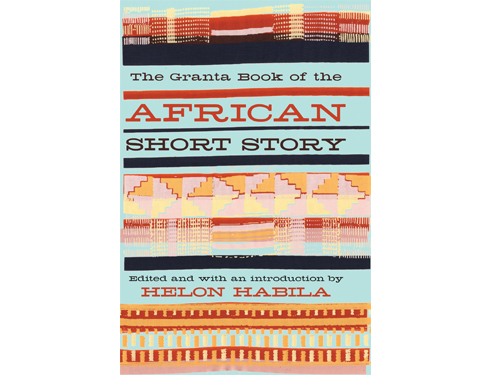
There are good reasons why it is hard to assemble a credible anthology of African short stories. There are too many languages, too many histories and too many hardened, colonial-era divisions, which means that it is unlikely that any one editor will be both familiar and sympathetic with authors from Egypt, Morocco, South Africa, Ethiopia, the Ivory Coast and places in between.
Perhaps “The Granta Book of the African Short Story” was a project destined to fall short. Still, editor Helon Habila could have failed better.
The stories within the collection are not to blame. Indeed, Habila has found some fabulous stories, full stop. The problem is the framing: “The Granta Book” is a collection for the non-African, a book to be held in both hands like a snow globe, shaken up, and admired for how it represents “that big continent.” It is not a living dialogue between African stories for (mostly) African readers. Instead, Habila has created a panoramic view for the curious outsider.
The stories are arranged by the age of the author. Younger authors like the Nigerian Chimamanda Ngozi Adichie and Egypt’s Mansoura Ez-Eldin thus come first, while elders like the Guinean Camara Laye and South African Alex La Guma bring up the rear. Habila explains in the introduction that his intention was “to showcase the newest writing from the continent first, before moving back in time to show what came before that, as that is what these younger writers must have grown up reading.”
In so constructing his collection, Habila seems to assert that one can trace a single history of the African short story, which he presumes is located south of the Sahara. But the featured writers are almost certainly drawing on a multitude of traditions. Without asking Ez-Eldin, it seems more likely she grew up reading Youssef Idris than Laye. And, while Moroccan author Leila Lalami writes in English, it seems probable that Leila Abouzeid had a greater impact on her work than La Guma.
But if you close your eyes and ignore the collection’s aspiration of representing the African short story, you can enjoy the treasures within. Some of these stories have been anthologized elsewhere, such as Milly Jafta’s short and luminous “The Homecoming” and Olufemi Terry’s wonderful, Caine Prize-winning “Stickfighting Days.” Indeed, it is easy to see why many of the authors in this collection have been shortlisted for the continent’s most coveted short-story prize.
The stories in this 361-page collection represent a large spectrum of experience with interesting overlaps and differences. The Nigerian immigrant newlyweds in Adichie’s “The Arrangers of Marriage” are in a carelessly arranged, unhappy marriage. Although the husband, who calls himself Dave, is obsessed with becoming American and is a poor excuse for a spouse, the move to the United States is liberating for Chinaza, the wife and protagonist of the story. After all, “This is the US of fucking A, for God’s sake.”
Later in the collection, we meet a very different pair of immigrant newlyweds from Sudan, lovingly crafted by Leila Aboulela in her “Missing Out.” Majdy and Samra’s newly arranged marriage is far less turbulent than Chinaza and Dave’s. Instead, theirs is full of quiet comforts, as well as silences and exclusions. As with many of Aboulela’s works, religion plays a central role, and Majdy’s estrangement from prayer becomes one of the gulfs between him and his new wife.
The conversation between these two stories is one of the things that make this collection worth having. Adichie and Aboulela have different ways of dealing with similar material, in tone, attitude, narrative structure and pacing. Lalami’s “Homecoming” and Jafta’s “The Homecoming” also speak to each other in interesting ways.
After all, although there are differences in the story form’s history in Nigeria and Egypt, there are also points of commonality. It seems that 90s-generation writers both north and south of the Sahara have become bored of “big issues” and instead craft stories that lack the explicit ideologies of their 60s generation elders.
This absence of clear ideology also has its political dimensions. The Tunisian writer Rachida el-Charni’s story “Street of the House of Wonders” is on the surface free of “big issues.” It is a story about a woman who, when her gold jewelry is snatched off her neck, fights the thief for it. A critique of silence is inscribed in the narrative. The bystanders, instead of helping the narrator, condemn her for fighting back. She shouts at them, “Gutless, spineless cowards! Since when has standing up for yourself ever been something to laugh about?”
Although stories like Charni’s and Aboulela’s are gems, Habila is at his most knowledgeable when curating the works of writers from sub-Saharan Africa. The North African stories he selected do not fully represent the wealth and breadth of the Arabic-language short story. And, when Habila reels off a list of writers he has neglected, there is no mention of Tawfiq al-Hakim, Tayeb Salih, Radwa Ashour or Ibrahim al-Koni.
Nonetheless, these stories could be the beginning of an interesting dialogue between the different populations on our continent and within its diasporas. It would be wonderful to find this book in Cairo, Tripoli, Tunis, Cape Town, Harare and in African neighborhoods in New York City, London and beyond. It would be even better to imagine that here begins an exchange not just between writers in African capitals and readers in London, but a dialogue in Africa, for Africa.




